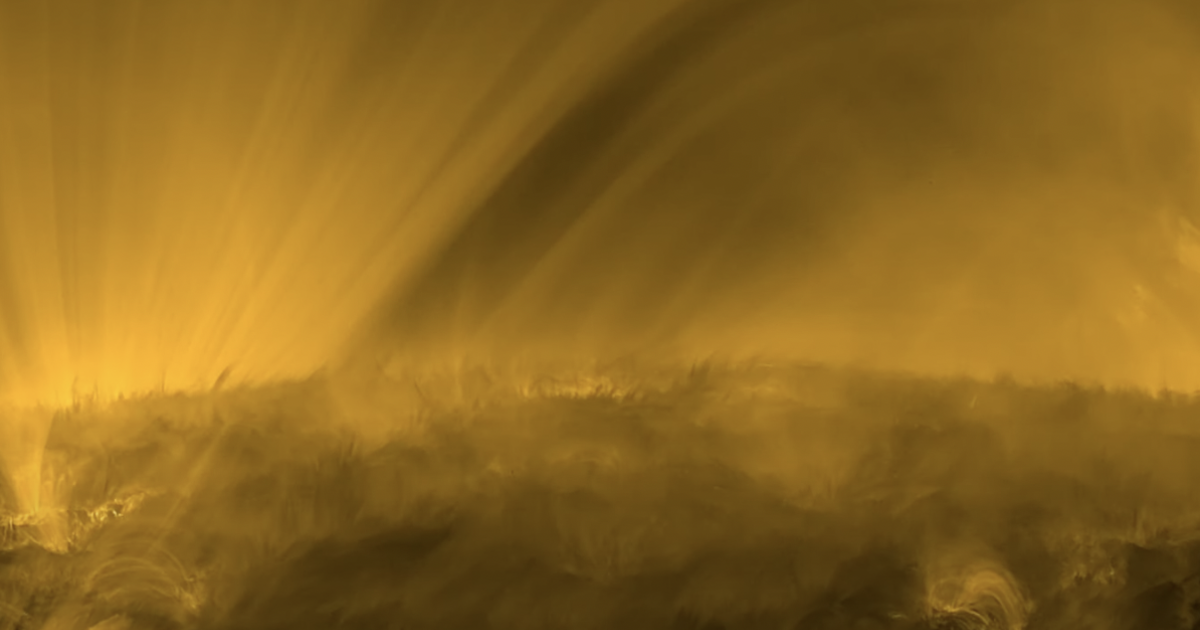
Orbiter captures video of plasma swirling on the sun in “exquisite detail”

A spacecraft from the European Space Agency has captured new video of the sun’s surface, showing plasma swirling on the star’s “otherworldly” surface, according to a news release from the organization.
The ESA said the images were captured by the Solar Orbiter, which was launched in February 2020 and has spent the past several years releasing images from its place near the sun. The orbiter has also taken the closest-ever images of the sun and its polar regions, the ESA said online.
The new images were taken when the orbiter “filmed the transition from the Sun’s lower atmosphere to the much hotter outer corona” on Sept. 27, 2023, the ESA said.
the video, the surface of the sun appears furred with dark yellow material as beams of gold swoop overhead. The hair-like structures are made of plasma, which follow the magnetic fields that emerge from the interior of the sun. The swooping structures are spicules, spires of gas that can reach a height of more than 6,000 miles. The “exquisite detail” of the images is unlike previous photos of the area.
Visible in the lower left corner of the video is a feature that the ESA calls “coronal ‘moss,'” which typically appears at the base of objects that are too hot to be seen with cameras.
Beyond the structures, the orbiter even captured an eruption on the sun’s surface. The event appears small, appearing in the middle of the video around the 20-second mark, but the ESA said the eruption is bigger than Earth. During the eruption, cooler material — which looks darker and absorbs radition from the sun — is lifted upwards and then falls down again.
The eruption is followed by a cooling coronal rain. The rain, which is made of clumps of plasma that fall back to the sun’s surface, is “probably less” than 18,000 degrees Fahrenheit, the agency said, and it appears dark against the large coronal loops, which are around 1,800,032 degrees Fahrenheit.
The unprecendented images were released as part the spacecraft’s mission to learn more about the sun. NASA’s Parker Solar Probe was also examining the sun the same day the video was taken, measuring particles and the magnetic field around the star. The two missions even worked together to measure a solar wind that blew through the area, the ESA said.
More
More
Source: cbsnews.com